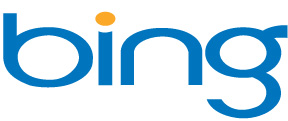Bing is taking a step to hep make its products more appealing for school-age children, with Bing For Schools, an opt-in program targeting K-12 institutions launching later this year. The program is context-specific version of Microsoft’s Bing search engine that gets rid of all ads from search results, and offers some bolstered privacy protections and more rigorous SafeSearch filtering of adult content.
Bing For Schools is a completely voluntary, opt-in program for schools in the U.S., so it’s still possible for any school to offer up the standard, none-modified version of Bing as well. Opting-in means Bing rolling out its more student-friendly version for anyone who types “Bing.com” into any URL field on any computer in the school’s network. It’s completely free for any participating school, too.
The Bing team isn’t sharing too much about what’s going on with Bing For Schools in terms of specifics at this point (details are still beingn pinned down), but the aim of the project is to help keep kids from getting distracted or being sold to by advertisers in an educational environment, and to help protect kids by defaulting to the strict setting of SafeSearch and disabling the option to change it. Finally, it’s not just about taking things away: Bing will also add short lesson plans that help teach digital literacy to its homepage images, to encourage critical thinking skills.
Of course, Bing is promoting this as a purely giving move, but should it prove successful, it will give the company a way to seed its search engine early with educational institutions across the U.S., who will likely encourage its use as part of the program. There’s a lot of value in figuring into the lives of students early in their education in terms of later adoption, so Bing For Schools isn’t just an investment in the future of our kids, it’s an investment Microsoft is making in Bing, too.
Bing rival Google offers a host of tools for educators, including Search Education and Google Scholar, but this approach by Microsoft could help it gain more ground in early- and middle-stage education, which is a big advantage to have.
